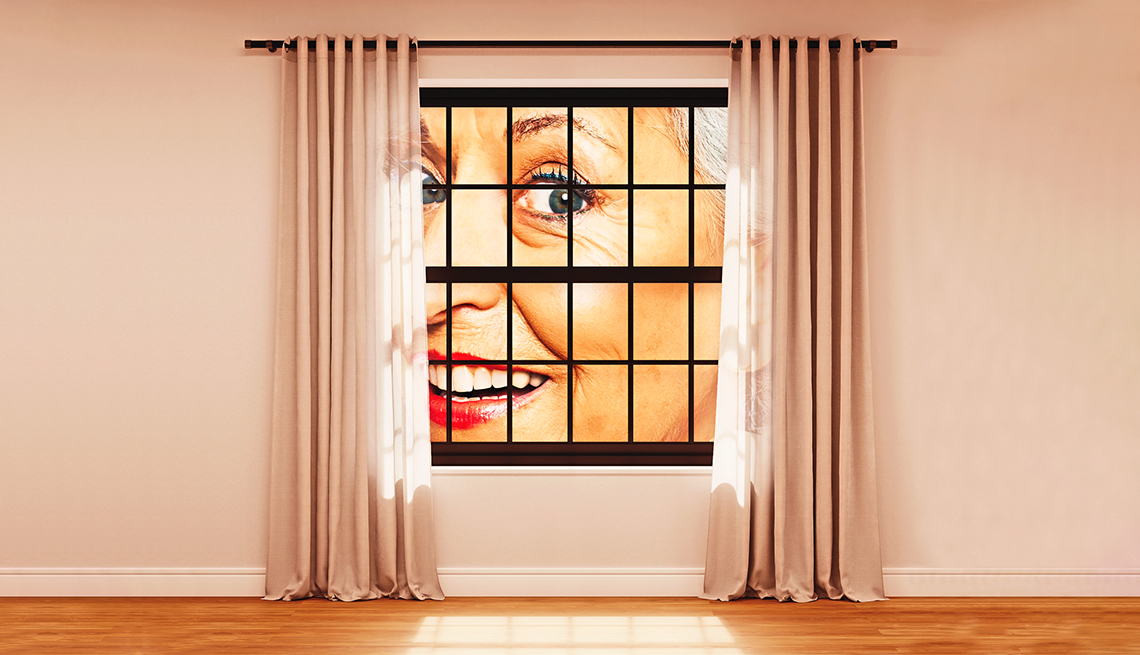
How to save your marriage when mom moves in
- Select a language for the TTS:
- UK English Female
- UK English Male
- US English Female
- US English Male
- Australian Female
- Australian Male
- Language selected: (auto detect) - EN
Play all audios:

It’s easy to think that the trend of multiple generations living in the same home is because grown kids are boomeranging back — or never left. But just as frequently these days, it’s because
aging parents are joining their adult kids’ households. As Steve and Marta Burcham have learned, inviting an elder to move in with you can cause unexpected tensions in a marriage. The
Oklahoma City couple built a whole new house to share with Marta’s 85-year-old mother after she was widowed. The two thought that putting their bedroom upstairs and Mom’s on the first floor
would ensure enough elbow room for everyone. They thought wrong. “There’s no privacy in the house,” says Steve, 53. “The air conditioner's always a battle: I like to keep it about 70
degrees; she wants to keep cranking it down lower.” Other sources of conflict: whether to leave TVs and radios on and whether to leave dishes in the sink for later. “It’s one thing to love
your mother,” says Marta, 52 and a social media specialist. “It’s another to move her in after you’ve been married 20 years.” A RISE IN MULTIGENERATIONAL HOUSEHOLDS REASONS FOR BUYING A
MULTIGENERATIONAL HOME 31% said it was because adult kids moved back home 37% said adult kids never left 38% wanted to look after the health of an aging relative _SOURCE: National
Association of Realtors, 2022 Profile of Home Buyers_ _and Sellers_ Living situations like the Burchams’ are growing increasingly common. Almost 67 million Americans over age 18 now live in
a multigenerational household. For many such families, the arrangement is a source of ease and joy. Grandparents can help with child-rearing duties — and also help foot the bills. And after
a few decades out on their own, midlife adults often have the perspective and wisdom to cherish more time with their parents. But such rosy hopes can cause unrealistic expectations. “Couples
can be very idealistic about how this is going to go,” says Sara Qualls, a professor of psychology at the University of Colorado. “Anticipating that rubs are going to come up helps to break
through that idealization.” Close quarters can easily spark conflict, says David Rakofsky, a clinical psychologist and founder of Wellington Counseling Group in Chicago. “No matter your
temperament, you’re going to see this parent or in-law on their worst days. And they’re going to see you on yours,” he says. “In-laws, in particular, may have enjoyed decades of distant
politeness. But that can all change, and it can feel really destructive if not well handled.” A March 2022 report from the Pew Research Center says almost a quarter of adults in
multigenerational homes say the arrangement is stressful “all or most of the time.” If you’re considering asking Mom or Dad to move in, your first job is to make sure you’ve truly grown up.
“Many people regress when they return to living with their family of origin,” says Regina Koepp, a Vermont-based geropsychologist. “It can raise old conflicts that didn’t fully get resolved
and are still tender spots.”
